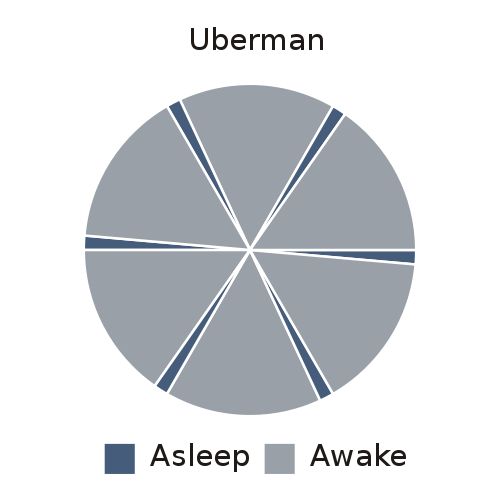Why does interrupted sleep ruin our productivity?
Many entrepreneurs boast sleeping five or fewer hours per night, but is it hurting companies that rely on employees’ creative and out-of-the-box thinking skills? Are you hurting yourself and your company when you sleep less?
Insufficient sleep decreases our productivity, but that’s not the end of the story: Sleep deprivation also affects our mood, our creativity, and our physical health. For example sleep deficiency is linked to depression, suicide, and having trouble making decisions and solving problems as well as heart disease, kidney disease, high blood pressure, and diabetes.
The stage of sleep that is responsible for our brain health is called REM (rapid eye movement), while the other stages of sleep combined are called non-REM and are responsible for healing and repairing our body. Adults spend 20% of their sleep in REM. That’s around 90 minutes a night, or an average of 5 years a lifetime.
During REM sleep our brains form new pathways to help learn and remember information. This enhances our learning and problem-solving skills, and improves our abilities to pay attention, make decisions, and be creative. All vital traits to run and work in an innovative business. Researchers estimated that lost productivity due to poor sleep cost $3,156 per employee with insomnia and averaged about $2,500 for those with less severe sleep problems. Fatigue-related productivity losses were estimated to cost $1,967 per employee annually.
Quality not quantity
I started researching sleep because although I’m sleeping 7 hours a day, I’m clearly sleep deprived. Since I had my baby last month, my sleep has been interrupted every hour or two, because that’s how often newborns feed. I noticed that even if I sleep a total of 7 or 8 hours a day, I’m still not rejuvenated. Here’s why:
The first REM sleep period occurs 1.5 hours after you fall asleep. The first one is usually 10 minutes long and they gradually get longer and longer. The last one may be an hour long. Typically you may have 4 to 5 periods of REM sleep a night. Intense dreams happen during that time. This is why it’s hard to rejuvenate with my chaotic sleep patterns. It’s difficult to get enough REM sleep.
Interestingly, REM deprivation causes a significant increase in the number of attempts to go into REM stage while asleep. On a recovery night, you will most likely move to REM sleep more quickly. This is called REM rebound. This phenomena is an indication that REM sleep is crucial and perhaps the most important stage of sleep.
While I may be lacking REM sleep when I follow the sleep pattern of a baby. He, on the other hand, is not. Newborns move through the stages of sleep quicker, and unlike adults they spend 80% of their sleep in REM. It helps them learn about their new world.
Sleeping 2 hours a day: Uberman’s sleep schedule
The Uberman’s sleep schedule consists entirely of 20 minutes nap spaced out throughout the day, 6 times a day. So, you nap once every 4 hours for 20 minutes, getting a total of 2 hours of sleep in a 24 hour period.
The theory behind this method is that your body will slowly adapt to fall directly into REM sleep during those naps as it will do a REM rebound. The intention is maximize your REM sleep and minimize your non-REM sleep, so that your naps are more effective and you can sleep 2 hours a day and stay productive.
This method of organizing optimizes your sleeping time to maximize your REM sleep and minimize your non-REM sleep, so that you power naps are really effective. The result is that you sleep for only 2 hours each day, and are awake for 22 hours. People who have tried this method say that they did feel good and productive and had more hours in the day, however no one EVER adopted this method for a long time.
Problems
The first obvious problem with following this pattern is that non-REM sleep has benefits that no one should go without. It repairs the body. Other criticism from people who have tried it include:
- Difficulty with being out of sync with family, friends, work, etc.
- The schedule is too rigid as missing one nap will completely ruin it.
- You can’t exercise and recover when following this method.
What can you do for business
While many companies offer wellness incentives for employees to promote healthy exercise and eating habits, few promote healthy sleep habits. The first step can be awareness and changing how we link sleep deprivation with success and hard work. Offering nap rooms and encouraging employees to unplug more during their off-time are other ways to allow for more unwinding time and sleep.
What are your thoughts on sleep habits and productivity? Share with us in the comments below.
Credits: Head picture by Moyan Brenn on Flickr

